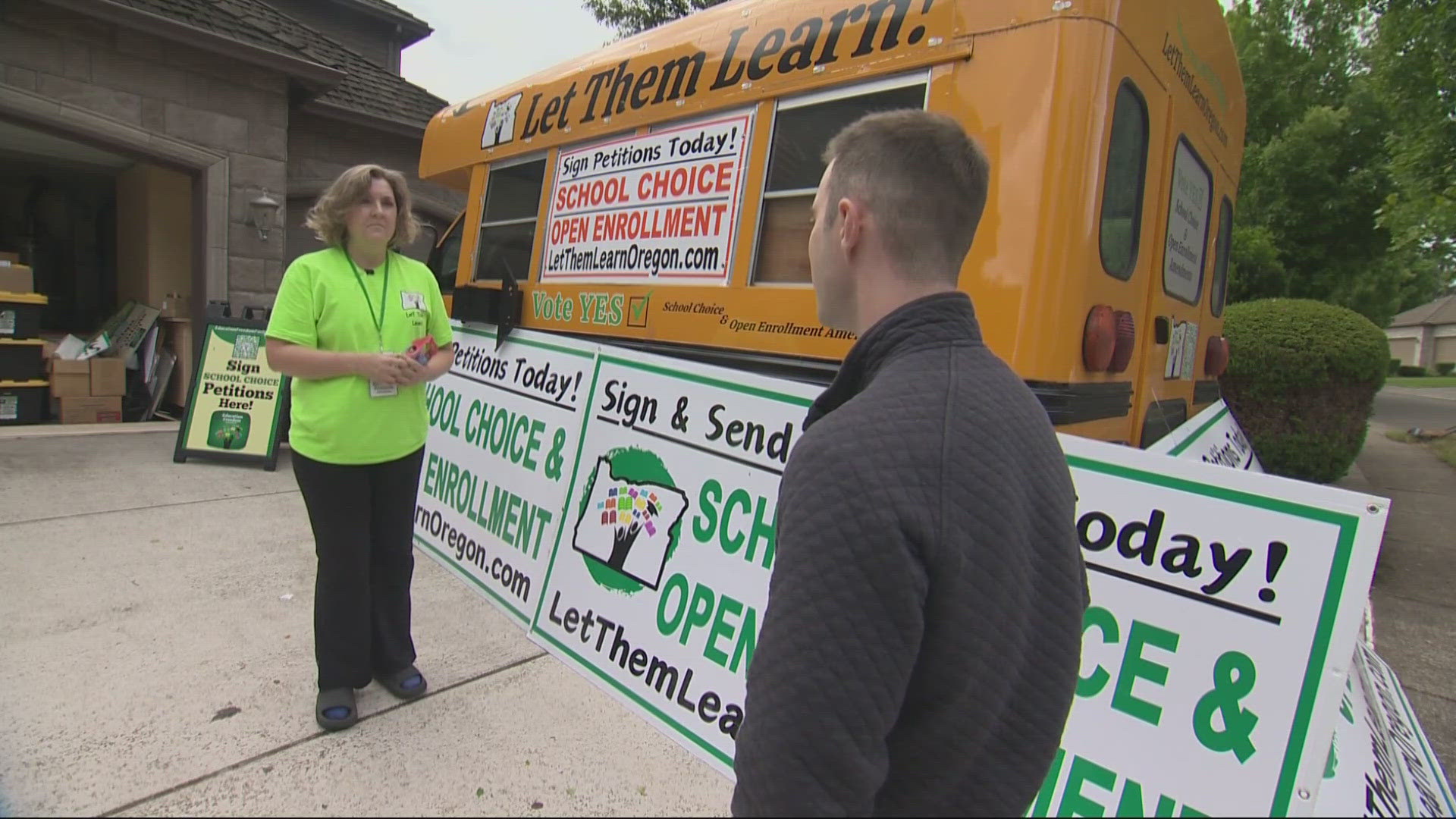PORTLAND, Ore. — Tens of thousands of Oregonians have signed petitions to get school voucher and open enrollment initiatives onto the November ballot. The proposed constitutional amendments would give parents the ability to send their children to any public school district regardless of where they live — or give families thousands of dollars in vouchers to allow them to opt out of public schools, instead sending their kids to private or charter schools.
Along with tuition, the funding could go toward buying things like a school uniform or textbooks. Funds could also be used to homeschool students.
"It lets parents who know their children, know the needs of their kids, be the ones to say, 'Hey, my child needs to go to this school,'" said Donna Kreitzberg, executive director of the group Education Freedom for Oregon and the initiatives' sponsor group Let Them Learn Oregon.
Kreitzberg said her organization's goal is to provide a quality education option for every Oregon student. Twenty-nine states currently offer the kind of vouchers outlined in the petition, an analysis by Education Week found.
Kreitzberg said more than 30,000 Oregonians have signed the two petitions so far. The sponsors need 160,000 signatures by the end of June to get on the November ballot.
"The whole point of this system is to give all these kids a good education,” Kreitzberg said. "They can't all find it in the same spot."
Critics of the approach argue that school choice policies harm vulnerable students, siphoning money away from the public schools that need it most instead of trying to help struggling students.
"It's going to be a direct draw from public education to pay for private school," said Megan Mermis, a Portland Public Schools parent. "It increases racial and economic disparities. And it leaves kids behind that need the most help."
Public schools are required to provide equal education access for students with disabilities. Charter and private schools do not have the same requirements.
"It is unclear to me in this initiative, how students with disabilities would be guaranteed their rights of service," Pat Burk, a PSU Educational Leadership and Policy Associate Professor said.
Studies show that charter schools work just as well as public schools, and not any better or worse, Burk added, so the measures would significantly diminish public school funding while not meaningfully improving student education.
"In my opinion, it would mean less funding for local public schools," he said. "It's not just about the money. It's also, what is the role of education for our communities?"
Burk also argued that there are problems with how the measures propose to regulate the funding. Since the vouchers would be allocated to parents, he said, there wouldn't be as much regulation or oversight as in the public school system. According to the Washington Post, billions of dollars from taxpayers are now allocated to religious schools through voucher programs.
"I think it's just going to divert public tax money to private, largely religious education," Mermis said. "And it’s mainly going to go to already wealthy families, who already have their kids in private schools."

